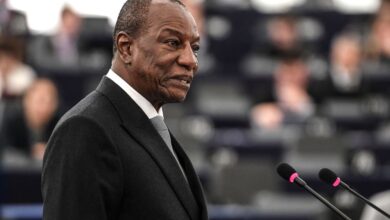Guinea
Guinea Health Authorities Report First New Ebola Virus Case In Nearly A Month

Guinea on Thursday detected its first new case of the Ebola virus in almost a month, according to the World Health Organization (WHO), reported Africa News.
According to Matshidiso Moeti, the director of WHO Regional Office for Africa, the case was registered in Soulouta village of the southeastern N’Zerekore region in Guinea.
She said the WHO is on high alert and continues to support case management, surveillance, and community engagement efforts by the Guinean health authorities.
“Saddened to hear of the #Ebola case reported in Guinea after 27 days without a new confirmed case. We remain on high alert — supporting Guinean health authorities’ surveillance efforts & preparedness in neighboring areas,” Moeti wrote on Twitter.
It is the first reported Ebola case in the country since March 4, bringing the outbreak total to 19 confirmed and probable cases and nine deaths. The latest Ebola outbreak in Guinea was declared on February 14 this year.
In response to the outbreak, the Guinea government launched a vaccination campaign to stop the spread of the virus on Feb. 23 after it received 11,000 doses of the Zebrov vaccine.
About 3,200 people were vaccinated as part of the vaccination campaign. The last death due to the Ebola virus was registered on March 24.
Guinea, Liberia, and Sierra Leone were the three most-affected countries in the 2014-2016 West Africa Ebola outbreaks that killed more than 11,300 people and infected an estimated 28,600 people in the course of the epidemic.
Ebola is a kind of tropical fever that was first detected in 1976 in Sudan and the Democratic Republic of Congo (DRC). The virus gets transmitted to human beings from wild animals.
Guinea is also facing the ongoing coronavirus pandemic with 20,228 cases reported so far. The death toll has reached 128, while the numbers of recoveries stand at 16,832.





